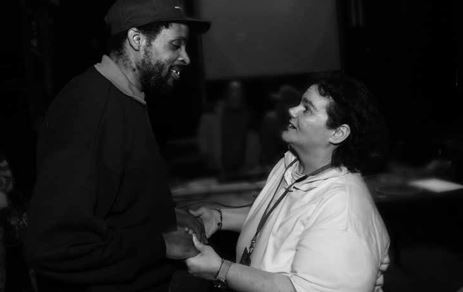I’ve been on the road a lot recently delivering training on supported living. It’s been quite depressing.
I think back to 2003 – those early days of the Supporting People programme– when providers, encouraged by social services, started deregistering care homes. The intention was that it would give people with a disability their own tenancy, increased rights, more freedom and a better quality of life.
I loved the Supporting People programme – I even worked with a Supporting People team because I loved it so much. So it makes me sad to say that, except for some small pockets of greatness, it feels as though we have achieved nothing even resembling independence.
There’s still a general lack of understanding and acknowledgement that a tenancy is a legal document, not just a token piece of paper. We’re not “playing house” – we’re supporting people to manage a formal arrangement between a tenant and landlord.
Same sex, no sex
My “incredulous face” got the better of me when I heard a support worker declare that “someone with a learning disability probably wouldn’t know if they were gay”. Another support worker shamelessly announced that she had made one of her service users split up with her boyfriend as “they just kept kissing all of the time” which was, apparently, embarrassing.
I can preach the Equalities Act, Mental Capacity Act and Deprivation of Liberty Safeguards until I completely lose my voice (and I have) but these incidents just consider people with a learning disability to be “normal” in terms of their feelings, preferences and urges.
Clubbing or cleaning?
Why do so many well-trained, experienced support workers spend their days cleaning?
Local authorities pay a premium for staff to, allegedly, cover their training and support.
One such experienced employee told me: “I wouldn’t want to stop cleaning as I’d get bored. I’d have to watch Tipping Point with the residents.”
In response to the Stay Up Late campaign, I asked a group of 18-year-olds if they would consider being a part-time support worker for people with learning disabilities to earn money while they were at university. None had or would consider it “because it sounds so boring”.
And they’re right – it probably would be in the current climate. But what if we started actively recruiting young (or young at heart) people to specifically work later in the evening to take people to band practice, to gigs, to the pub (and not just the 6pm curry and pint for a fiver night), to an all-night horror movie marathon at the cinema, or to a friend’s house to watch Love Island and the programme after Love Island that talks about Love Island?
Residential care in disguise
A lot of the sector is set in its ways. Staff don’t seek out articles, watch documentaries or read news relevant to their job, online or otherwise, and they rely on employer-led training to keep up to date.
Only a small minority of people with learning disabilities living in council-funded placements have a job or a relationship, or understand their legal rights. We just don’t expect it of people.
One of the great positives about people having their own tenancy is that, if they earn some money, it’s theirs to keep and, once the bills have been paid, spend it on whatever (or whoever) they want. Instead, we leave them all on benefits, have their money managed by the local authority and give them an allowance. Remind you of anything? Have we re-made residential care in disguise?
Directors of adult social services so often announce proudly that they no longer use residential care but few seem to fully understand the legal implications, creative commissioning requirements and additional risks of moving people into a tenancy. They do not train their social workers adequately, have quality checks in place or really let families know what this means.
There is no doubt that supported living is a no-brainer for many people and that it should be considered an option for all but, the more I understand the complexities of the law and the challenges facing the sector, the more I worry about the ad hoc, gung-ho approach to the whole thing.
